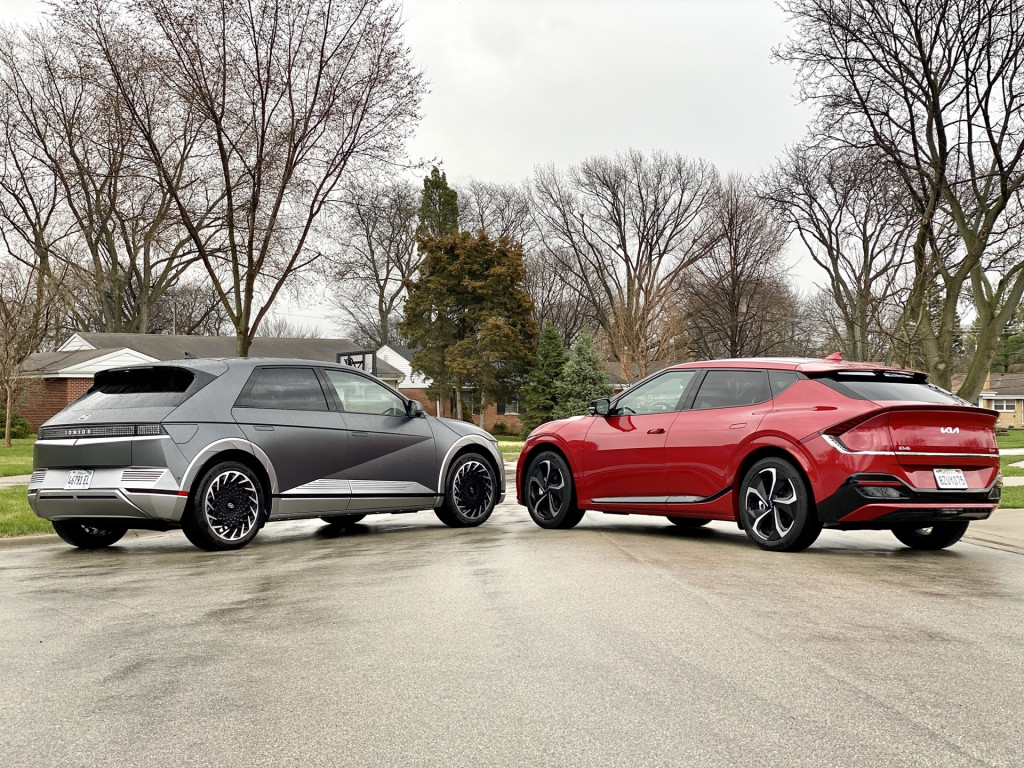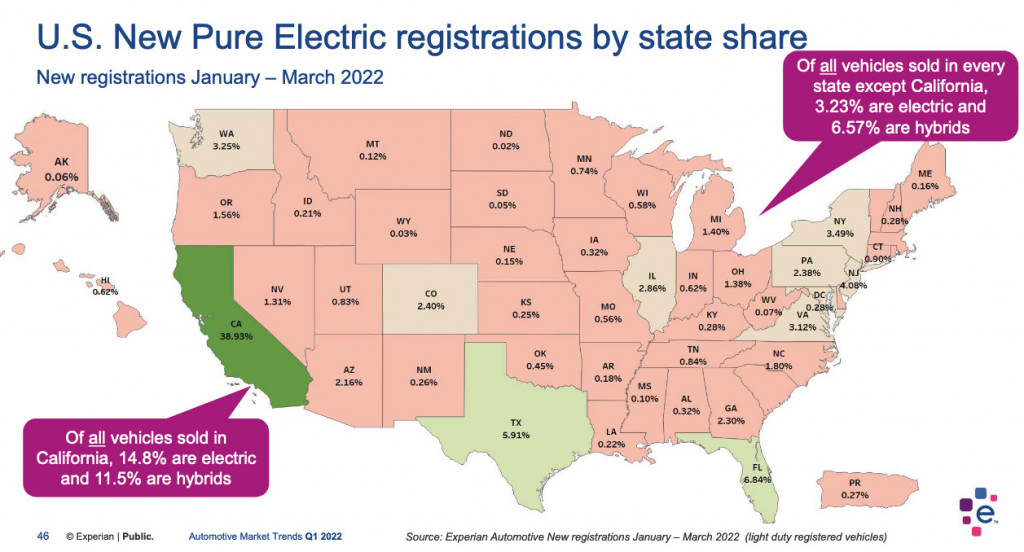A single model, now being made at two American factories, accounted for nearly one out of every three new U.S. electric vehicles registered in the first quarter of 2022. And that is the Tesla Model Y.
Despite threats from other automakers in the long game, they're all still looking like minor players five years after Tesla started launching its mass-market Model Y and Model 3. Together, the 3 and Y accounted for 62.8% of new EV registrations in the quarter, while Tesla’s four models together captured 71.7% of the EV market.
The data comes from the latest quarterly roundup released by Experian Automotive last week, rounding up state registration data that gives us a better picture than sales data—especially without the periodic granular data from Tesla that's released by other automakers.

2022 Kia EV6, red, and 2022 Hyundai Ioniq 5
According to Experian, electric vehicles topped 5% of U.S. new vehicle registrations in the first quarter, with California well in the lead, of course.
From Q1 2020 to Q1 2022, Tesla boosted its share of the entire U.S. vehicle market from 1.4% up to 3.3%. The firm noted that Tesla managed to sell nearly as many “electrified” vehicles in the quarter as Toyota despite having four such models, versus all 11 Toyota plug-in hybrid, hybrid, and electric offerings.
Kia and Hyundai combined are nearing 10% of the U.S. EV market, while Ford is nearing 5% of the EV market. Kia took 5.3% of the EV market for Q1, even though the first of its EV6 electric SUVs weren’t delivered until late January.
With registration data that we can compare in this way with Tesla lagging a couple months, will those brands become a bigger threat in Q2? It remains to be seen—especially with production ramping up at Giga Texas.

California is 39% of U.S. EV registrations - Experian Automotive Market Trends Q1 2022
Looking by state, nearly 38% of the national new-vehicle EV registrations in January through March were in California. And in California alone, nearly 15% of new-vehicle registrations in California in Q1 were fully electric, and 11.5% were hybrids.
Crunching the rest of the states together, about 3.2% were fully electric and 6.6% were hybrids. But it’s significant to note that EVs rose from 2.2% in Q1 2020 to more than 5.1% in Q1 2022.
On a reality check, that means nationwide, just one out of 20 new vehicles is fully electric. And with the average vehicle age approaching 12 years, for those thinking the electric revolution has already arrived, well, there’s a lot of room to grow and, perhaps, friends and family to give a ride to this weekend.













